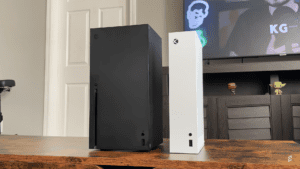Playing Super Mario Odyssey cut depression symptoms in half according to a German psychology study. This stands in comparison to a nominal reduction in symptoms for groups who underwent standard treatments or a cognitive training computer program (CogPack).
First reported by Psypost, the study centered on cognition, which impacts functions such as memory, perception, problem-solving, and decision-making. Although researchers commonly emphasize affective symptoms (which is the emotional aspect of the illness), depression also induces cognitive dysfunctions such as persistent negative thoughts, self-criticism, concentration issues, and impaired decision-making.
Playing Super Mario Odyssey relied on processes associated with the hippocampus, a brain region crucial for cognitive tasks. Consequently, it had the potential to influence cognitive performance linked to that specific area of the brain.
In contrast to conventional approaches like the CogPack program and medication combined with psychotherapy, the Super Mario Odyssey group exhibited a significant reduction in cognitive depression symptoms.
The paper posted in Frontiers in Psychiatry concludes that 3D video games could emerge as a cost-effective treatment used in conjunction with regular treatment and therapy.
However, you have to keep in mind that the study had a small sample size of 46, which is too small to draw major conclusions from. The paper in question also mentions:
“Given the mixed and unblinded nature of this study, the results should be interpreted with caution. Further research with larger samples and follow-up measurements is needed.”
Even still, it is a positive report for the gaming industry as a whole. The more that people can see gaming as a way of relieving stress or even coping with hardship, the better the industry is viewed.





